| Caitlin W. |
| Caitlin was born on Friday 13 Mai 2005. She seemed to be a healthy little girl.
On day 5 și 6 she stopped drinking and was admitted to neonatal ICU at Greenacres Hospital (Port Elizabeth, Sout Africa), with dehydration and signs of infection., that night she stopped breathing and they started ventilating. Day 7 și 8 were very long days, her body started giving up and on day 9 the doctor informed us that she was clinically brain dead. On day 9 we had to decide whether or not to put the ventilator down. Day 9 came with a huge miracle – my little girl was breathing on her own again and there is hope. She recovered so quickoly that on day 11 no more support from machines were needed. One week later the same pattern happened and the doctors were puzzled. The pediatrician requested a metabolic sifting to be done. On June the 3rd 2005 she was diagnosed with Propionic Acidemia.
În octombrie 2005 a mickey tube was inserted for feeds. All her developmental milestones are delayed, she is still not walking or talking, but can stand with support and crawl on her bum. Our big problem is pneumonia every now and then. She was a very friendly little girl and touched so many peoples lifes. We miss her so much. There was not one day the past 6 months that we gave not thought about her. Caitlin: 13 Mai 2005 – 12 Aprilie 2011
|
Arhiva Categorie: Știri & Anunțuri

Nicholas F.
| Nicholas F.
My son Nicholas was born at 31 weeks gestational due to IUGR. He spent 85 long days in the NICU over at Strong Memorial Hospital in Rochester, NY. When Nicholas was born luckily he did not require any oxygen or serious medical attention, it was a few weeks later in the NICU when the newborn scan had come back with some “odd results.” With a second repeat to the newborn scan it was diagnosed my son had Propionic Acidemia. Although nothing else indicated that he had PA the Genetics doctor insisted we treat him accordingly to the results. As he was maturing in the NICU he had to go under surgery because he developed He is now almost 11 months old and loves food! He has quite the appetite and will eat anything he may come across, which we keep a careful eye on. Developmentally doctors have no concerns as of now and is doing well. As his one year birthday approaches we have talked with his genetics dietician and will continue to increase his protein intake as his body allows. It’s been a roller coaster this first year but we are happy to be in a “safe” place now with Nicholas and his happy/silly personality!
|
Gabriell
|
Gabriell Hi, My name is Gabriell and I was born in Taunton MA on Sincerely,Gabriell 14 PA |
Julien M.
| Julien M. |
|
Our story with PA begins with a phone call on our son’s third day of life. Up to that point things had been relatively smooth. It had been a year and a half since we began the process of adopting a child, and a little more than two months since we met with a birth mom who chose us as the adoptive family for her son. The joy we felt when we finally held that beautiful baby boy in our arms for the first time was indescribable. Things were like a whirlwind – emotions, social workers and family phone calls all passed in a blur. There were a few warning signs: he was hypothermic and gagged at almost every feed, but these things were explained as “normal” by the nurses and our minds were set at ease. Early on the third day I received a phone call from our adoption case worker that overnight Julien had been taken to the NICU as a precautionary measure because the overnight nurse had seen some things that caused concern. Throughout the day things only got worse. With each new phone call we learned about a new piece of what was being done to care for our child and nothing sounded good. By the time we arrived at the hospital late that afternoon Julien had been in the NICU for more than 12 hours. He had been intubated because of respiratory distress and was hooked up to more medical equipment than seemed possible with a body as small as his. I’ll never forget the NICU doc saying to us as we met late that night that they suspected a metabolic deficiency, and that depending on which one it was he would not be able survive. Julien was transferred to Children’s Hospital that night where the genetics team handling his blood work was stationed. Over the next ten days we alternated with the birth mother to make sure that someone was there for J almost all the time as we waited for a diagnosis and a plan to care for him. Propionic Acidemia was the second diagnosis we were given. I remember being grateful for this because PA was much easier to pronounce than what they suspected initially. Long days in the NICU and long nights at home wishing we were with him in the hospital were spent reading website after website as well as hospital printouts to learn everything we could about PA and its effects on the children who are born with this condition. Knowledge felt empowering and overwhelming at the same time. Julien was released from the hospital 10 days after his birth. We were once again filled with joy to be finally coming home – all 3 of us – and anxious about trying to manage him while feeling alone. We were first time parents, and now none of the stuff we had read about what to expect applied. We followed the plan given to us by our doctors, worked to make sure that the schedule of feeds provided by our nutritionists was implemented and prepared for the inevitable fatigue of the months in front of us. Julien managed the first year fairly well. He was a great eater at first and his care was relatively easy. Other than having to follow the carefully regimented schedule (even overnight) we charted everything that went in and everything that came out. We tracked meds, supplements, formula and attitude. We met with our genetics team each month, giving careful updates and watching for any warning signs. We met with a pediatric cardiologist and established baselines for J so that we would have a standard by which to check him should anything come up in the future. We did have a few hospital stays as he battled colds and other illnesses that brought on metabolic crises. Twice he came home with an NG tube so that we could continue to manage his feeds and meds until his appetite returned. Over time his appetite diminished to the point that we proceeded with a G tube placement at 11 months. We also participated in a research study to test Carbaglu and whether or not it would help keep J’s ammonias down to a level that was closer to normal. Some of our conversations with doctors have been quite unnerving – like when we talk about the possibility of a liver transplant. Some of them are very encouraging as we track his development and learn more about how his body is able to handle the effects of PA. For now Julien is a relatively healthy, very happy 15 month old little boy. He receives Early Intervention services (OT, PT, and DT) and he is testing about 3 months delayed. He has in incredibly goofy sense of humor, loves to cruise around the house, explore whatever sits below a three foot height and babbles constantly. He’s never met a person he didn’t like and is a constant source of joy. We are so proud of him – not just as our son, but also because of the incredible battle he has waged since those first couple of days. When we picked Julien’s name we did so because of the meaning behind it. When you put J’s first and middle names together you get the meaning of “young warrior.” We chose this for him because as a transracially adopted child we knew he would face some tough circumstances. We had no idea the physical battle he was going to face, but he has proven himself worthy of his name time and time again. We cannot fully express the joy we feel to have Julien as our son. The privilege of adoption is an incredible one and no medical diagnosis can change that. We believe that God is working his plan for our lives through all of this, and even when it is not exactly the way we would choose if we could, we are grateful that he brought Julien to us and we’re excited about the life ahead of us. |
Isabella D.
|
Isabella D. Our daughter Isabella (we call her Bella) was born on August 10, 2005 exactly Donnie and Olina
|
Archie
| Archie |
Sat in a dentists waiting room opposite a young Mum and her son, when 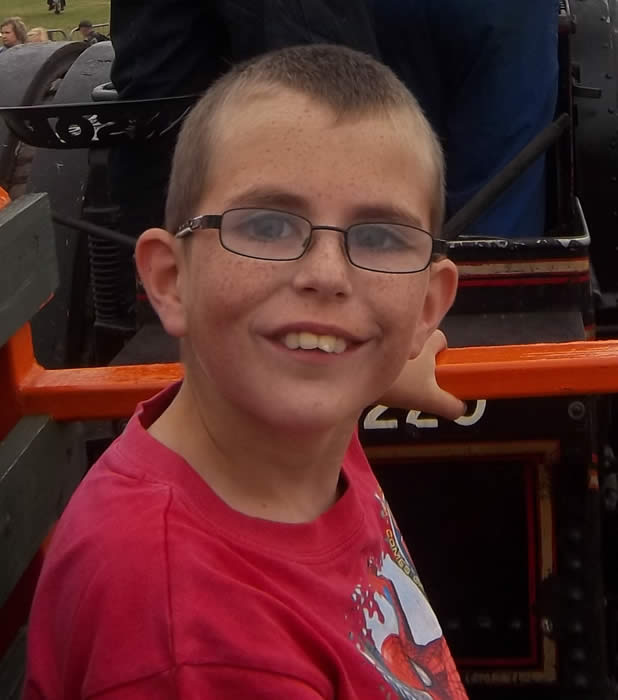 the dental nurse came in a called the Lady. As she stood up her son waved at me, his Mum looked at me and told me proudly “it’s his latest thing” I immediately asked “How old is he?” She told me nine months. the dental nurse came in a called the Lady. As she stood up her son waved at me, his Mum looked at me and told me proudly “it’s his latest thing” I immediately asked “How old is he?” She told me nine months.
I sat waiting for me turn and the only thought running through my head was, Archie is that age. Why isn’t he waving? This is what provoked us into seeking medical advice. We had appointment after appointment and were getting nowhere. We knew that things were not right he was too good, never crying not really paying attention, barely sitting let alone waving. The only answer we got for a long time was “its delay” this is an official medical term in the UK for we haven’t got a clue! After many months and continual pushing we finally got an answer…”Autism” or rather Autistic Spectrum Disorder. Again an official term that means “covering ours asses because we still haven’t got a clue” Finally after 18 months and many consultations and Archie developing a curious game of in and out where he would put items in something and then remove them. It didn’t matter what he used from toys cars in a box to video tapes from the shelf. The game was the same. We went for a blood & urine test, the results from this takes a week. After a week we were called in again for the same thing. The following day I received a call from the Doctor telling me to bring Archie to the hospital immediately. Now worried sick and fearing God only knows we went. This is when we were told of the PA. At first I didn’t believe there could be such a problem, after all protein is in just about everything surely? The condition was explained along with the odds of having a child with this condition was given. A single diet sheet was provided, the powers that be went to great length to explain that the amount of protein he could have was worked out on a weight ratio. When I questioned this along with many other things it boiled down to “it was their best guess” Not long after, Archie now being 30 months old he had an eye test. It was found that he needed pretty strong glasses as well. When I asked if it was part of the condition the reply was no it’s just more bad luck. To our amazement Archie never tried to remove them, therefore in my mind the only reason for this was for the first time in his short life he could actually see! Now eight years on and too many scares and hospital visits to mention Archie is your average (albeit) small 10 year old who knows he is different. I know it gets him down on occasion and he knows he gets treated differently from other kids, not always for the better as it can lead to him being left out or ignored. He does his best and that’s good enough for me. |
Anson J.
| Anson J. |
 Anson was diagnosed with PA when he was 2.5. His mother noticed once she stopped breastfeeding and put Anson on whole milk that his health seems to slowly get worse. He would sleep more and it became harder and harder for him to have bowel movements. When his growth started to become stunted and he would scream while having bowel movements, his mother brought him to his doctor and had him tested. At that time, his family doctor happened to remember reading about organic acidemia’s in a paragraph in his medical book and had Anson tested. Once he was diagnosed, Anson’s mom was put in touch with Dr. Packman from UCSF. After being in and out of the hospital for several years and testing many medications, Anson finally seemed to stabilize and his family was able to settle down a bit. Anson was diagnosed with PA when he was 2.5. His mother noticed once she stopped breastfeeding and put Anson on whole milk that his health seems to slowly get worse. He would sleep more and it became harder and harder for him to have bowel movements. When his growth started to become stunted and he would scream while having bowel movements, his mother brought him to his doctor and had him tested. At that time, his family doctor happened to remember reading about organic acidemia’s in a paragraph in his medical book and had Anson tested. Once he was diagnosed, Anson’s mom was put in touch with Dr. Packman from UCSF. After being in and out of the hospital for several years and testing many medications, Anson finally seemed to stabilize and his family was able to settle down a bit.
At around age 12, Anson felt like he didn’t fit in and that to make it better, he started to ignore the fact that he had PA and thought it would go away since he had been out of the hospital for many years. He stopped taking all medication, either hiding it from his mother, or refusing to take it altogether. Anson attended jr high and part of high school with no complications. He ate what he wanted and tried to forget his PA. He made the track and soccer team and had become very athletic. A couple of days before Anson’s 18th birthday, he was sitting with his mom and step-dad (mom was an EMT and step dad is a volunteer firefighter) when his heart went into b-fib and he stopped breathing. His mother and step-father kept him breathing until he was life-lighted to a hospital where they put him in a chemically induced coma to figure out the problem and how to fix it. Doctors told Anson that the amino acid in his system had built up as fatty tissue around the heart causing the b-fib. It was also discovered that Anson had arrythemia and an enlarged heart. A pacemaker/difribulator was put in and he was put back on his medications. About a year and a half later is when we met. We dated 6 months and were married. One our one year wedding anniversary, we found out we were pregnant with our 1st child. She is now 4 and we have a 21 month old son. They are both unaffected by PA. (neg. in newborn screening)
– Colleen J |
Lori Lee S.
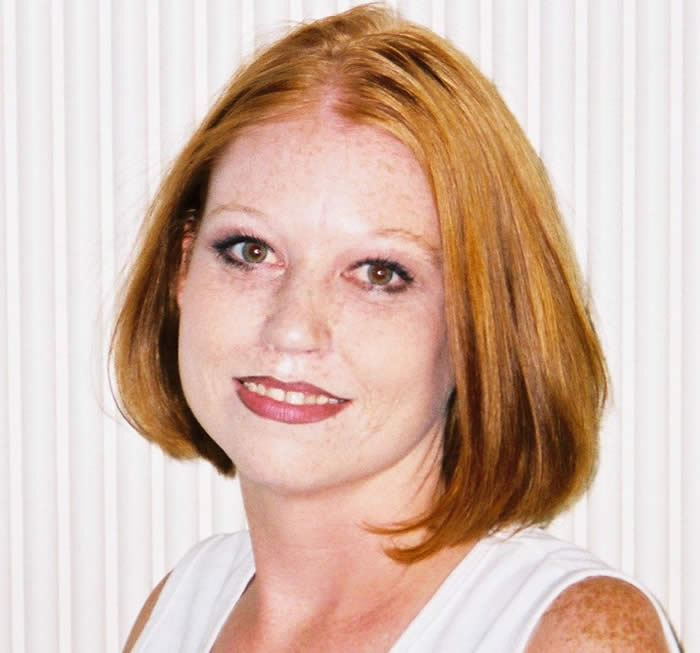
A Tribute to my Sister, Lori Lee 12/20/75 – 9/06/06 By Avery 09/07/06
I Saw You I saw you today in the morning dew As brilliant as a sea of shimmering diamonds I shared the most amazing sunrise with you today A million shades of red so random in their perfection I heard you today in the laugh of my children An enchanting melody a thousand angels strong I walked with you today and we talked about everything …and nothing all at once I saw you today in the changing of the leaves The colors of your life, the close of one season And the ushering in of another I sat beside a stream with you today The peaceful flow, steady and constant I saw you today…and you were perfect And rest assured…I shall see you again |
Aoun
| Aoun |
21 September 1995 – 19 Martie 2011 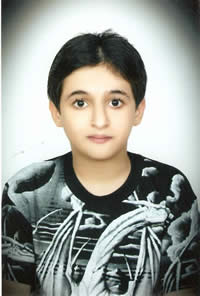
This is a short story of how we lost our son.
|
Kate L.
|
Kate L. Kate was born May 25, 2007 and weighed in at a healthy 7lbs, 3oz. Kate was diagnosed with Propionic Acidemia after we received notification that her Newborn Screening result came back abnormal. We received the initial report when Kate was about 11 days old, and after additional testing we received confirmation of the PA diagnosis when Kate was 20 days old. În această perioadă, Kate showed some symptoms of PA—such as sleeping more than typical newborns, she was losing weight and wasn’t consuming enough milk. On Wednesday June 13, 2007 Kate was admitted to the hospital and her lab work indicated that she was headed for trouble. She was moved to ICU and protein was removed from her diet. Kate received her special metabolic food and nutrition through an NG tube and we began learning more about her disorder. Kate quickly showed improvement after her diet was changed. Her blood ammonia dropped to a normal range from its high of 450. After Kate is now 13 months old. We have be extremely fortunate as she has been stable, healthy and growing since she was released from Cook Children’s Hospital last year. We work very closely with her metabolic team. Kate eats solid foods in addition to drinking her metabolic formula. She just started walking and says more than 10 words. She is currently on target in all areas developmentally. Kate is a very happy girl with a sweet and loving demeanor. As parents we are grateful for so many things. We believe that Kate’s life was saved because of Newborn Screening. If Kate had not been diagnosed early, we believe that she would have become very ill and where we lived in rural Texas was 3 hours from the specialized medical care that she would have needed. The newborn screening in Texas was expanded in early 2007 (about 6 months before Kate was born) to include Propionic Acidemia. We are eternally grateful the people that worked to get newborn screening expanded in Texas. We have a wonderful relationship with all of Kate’s doctors and medical providers. They are truly invested in Kate’s well-being. We have had unbelievable support and help from our family and friends. We have been able to network with other families that have children with PA and other metabolic disorders. These parents share information and provide support. We hope to be a support to other families in the future. Landon, Sarah and Kate Lowry Dallas, TX June 2008 |
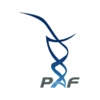
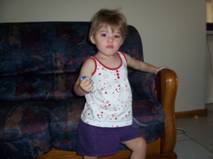

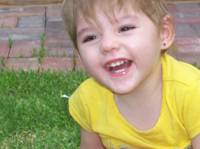
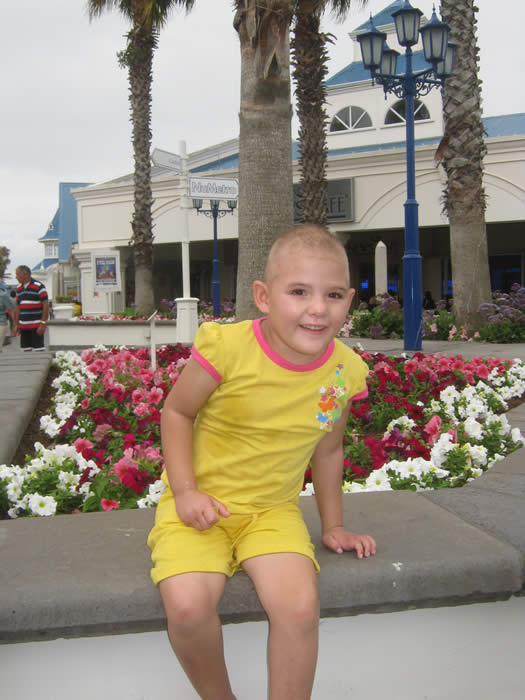
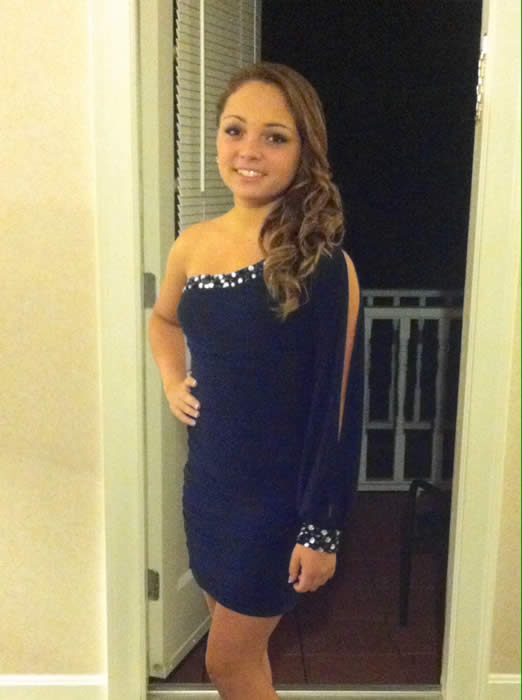 October 10th 1999. I was diagnosed with PA at birth through the newborn screening. I live a pretty normal life! I am currently a 9th grader at a great school. I now live in Fryeburg Maine with my parents and my younger sister. I love to dance and I currently am on the Act One Dance Companies competitive dance team! I also ski, play softball, soccer and really enjoy hanging out with my friends! I didn’t always live so normally. I was in and out of hospitals the first 10 years of my life. I had everything from just a virus to scarlett fever and everything in between. I have always been on a low protein diet but i didn’t start any medication until I was 5. I am very small (4’11) and sometimes kids say hurtful things, but I remember my mom always telling me “great things come in small packages”, plus my family and friends love me the way I am! When I was 5 I started on carnitine. When I was 11 I started on my protein replacement formula. I hate it but I know I have to drink it. I don’t have any learning disabilities, heart problems or any other severe medical complications that go along with having PA. I am very grateful to have had the care from my parents and doctors to keep me healthy all these years! I love them all tremendously, and couldn’t have done his without them! I do worry about my future, but I’m very grateful to have lived this long with only a few hiccups along the way! I will continue to live my life in the moment a cherish each relationship, friendship and learning experience I encounter! I pray one day there will be a cure! Thank you for all the research everyone does!
October 10th 1999. I was diagnosed with PA at birth through the newborn screening. I live a pretty normal life! I am currently a 9th grader at a great school. I now live in Fryeburg Maine with my parents and my younger sister. I love to dance and I currently am on the Act One Dance Companies competitive dance team! I also ski, play softball, soccer and really enjoy hanging out with my friends! I didn’t always live so normally. I was in and out of hospitals the first 10 years of my life. I had everything from just a virus to scarlett fever and everything in between. I have always been on a low protein diet but i didn’t start any medication until I was 5. I am very small (4’11) and sometimes kids say hurtful things, but I remember my mom always telling me “great things come in small packages”, plus my family and friends love me the way I am! When I was 5 I started on carnitine. When I was 11 I started on my protein replacement formula. I hate it but I know I have to drink it. I don’t have any learning disabilities, heart problems or any other severe medical complications that go along with having PA. I am very grateful to have had the care from my parents and doctors to keep me healthy all these years! I love them all tremendously, and couldn’t have done his without them! I do worry about my future, but I’m very grateful to have lived this long with only a few hiccups along the way! I will continue to live my life in the moment a cherish each relationship, friendship and learning experience I encounter! I pray one day there will be a cure! Thank you for all the research everyone does!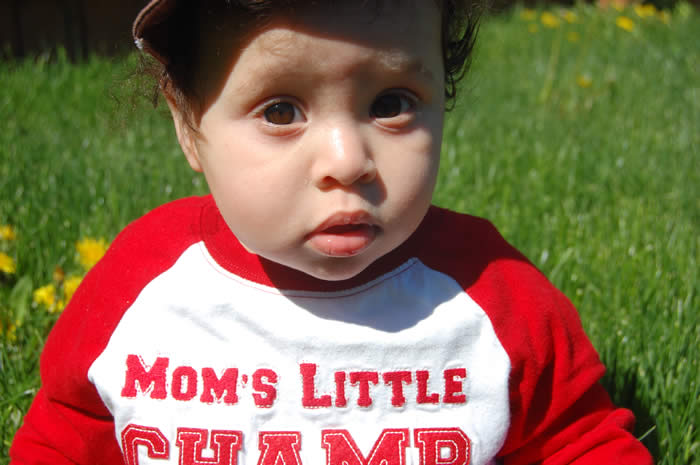
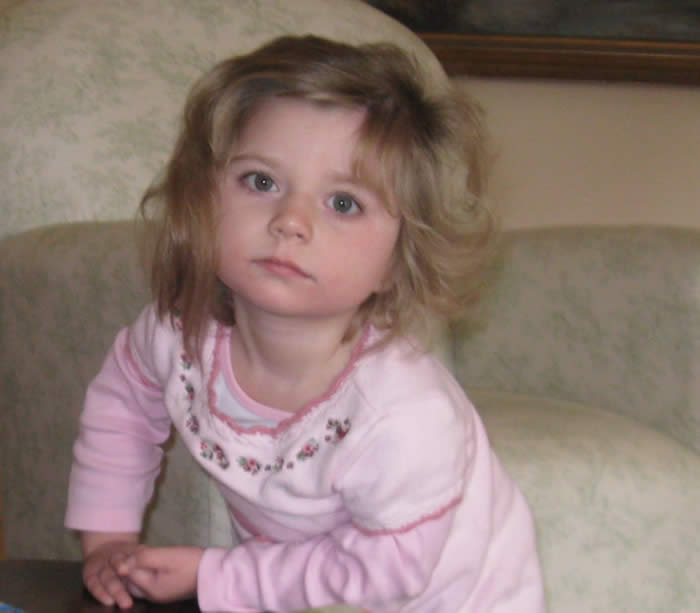 on her due date. A beautiful 8lb 11oz baby girl seemed to be a perfectly healthy newborn. Our 2-day old little princess took a helicopter ride to UNC Chapel Hill because she stopped eating, was lethargic and very acidotic. Heartbroken, we spent 2 weeks with her there, waiting for her to recover and learning about her disorder. She is a very severe case. She got her G-tube placed at 7 months, her port-a-cath at 19 months. She completely stopped eating by mouth around 11 months. She was hospitalized numerous times. Bella is 22 months old now. She isn’t walking yet or talking. She started showing a little interest in toys. Her baby brother is making her play with him. Her two unaffected brothers Luke 7 and Jack 8 months absolutely adore her. Our family is blessed with three beautiful children.
on her due date. A beautiful 8lb 11oz baby girl seemed to be a perfectly healthy newborn. Our 2-day old little princess took a helicopter ride to UNC Chapel Hill because she stopped eating, was lethargic and very acidotic. Heartbroken, we spent 2 weeks with her there, waiting for her to recover and learning about her disorder. She is a very severe case. She got her G-tube placed at 7 months, her port-a-cath at 19 months. She completely stopped eating by mouth around 11 months. She was hospitalized numerous times. Bella is 22 months old now. She isn’t walking yet or talking. She started showing a little interest in toys. Her baby brother is making her play with him. Her two unaffected brothers Luke 7 and Jack 8 months absolutely adore her. Our family is blessed with three beautiful children.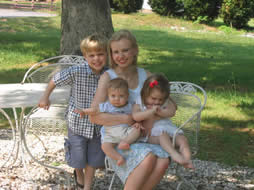
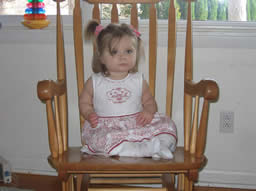
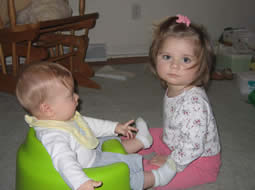
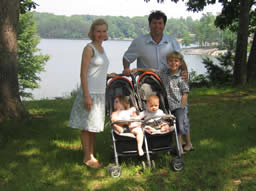
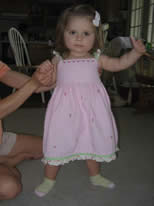

 Anson now takes his carnitor in addition to a betablocker. He is currently able to eat a little under the normal RDA of protein for an average sized man. His blood still shows signs of having PA present, but currently all of his levels are normal, and his heart is now at normal size. He works as a travel nurse recruiter locally and we have a marketing business on the side. Anson loves life and his family and is committed to showing God’s goodness no matter what the circumstances.
Anson now takes his carnitor in addition to a betablocker. He is currently able to eat a little under the normal RDA of protein for an average sized man. His blood still shows signs of having PA present, but currently all of his levels are normal, and his heart is now at normal size. He works as a travel nurse recruiter locally and we have a marketing business on the side. Anson loves life and his family and is committed to showing God’s goodness no matter what the circumstances.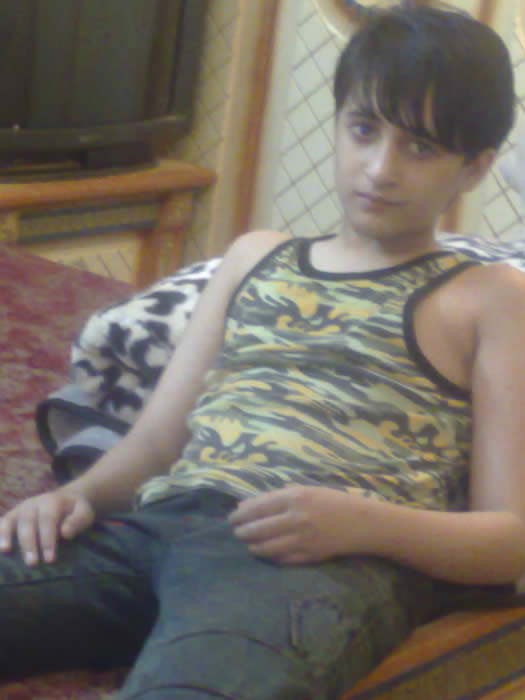

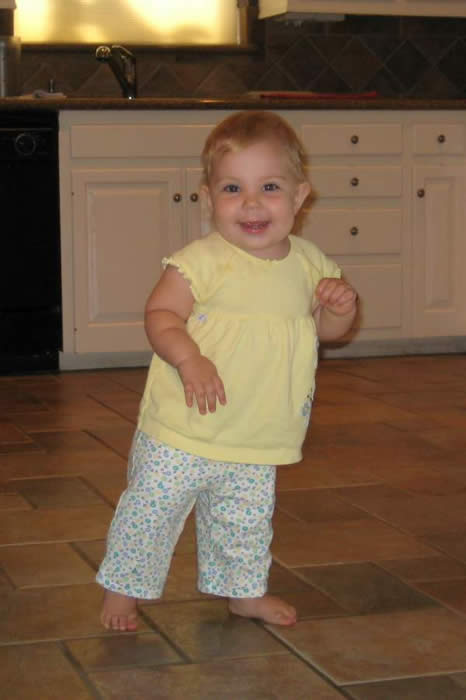 2 days in ICU, Kate moved to a private room where we began working on bottle feeding and we increased her daily formula intake. After 9 days in the hospital, we were able to go home as Kate was able to consume her daily calorie needs.
2 days in ICU, Kate moved to a private room where we began working on bottle feeding and we increased her daily formula intake. After 9 days in the hospital, we were able to go home as Kate was able to consume her daily calorie needs.